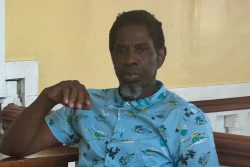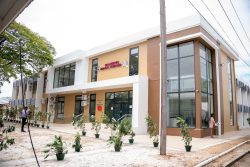The recent release by Cuban authorities of the last of 53 political prisoners in accordance with the terms of the historic deal announced by President Barack Obama and President Raúl Castro, on December 17, 2014, after 18 months of secret negotiations, marked another step forward in the process of rapprochement between Cuba and the United States of America.
Even though there is scepticism in some quarters regarding Havana’s attitude to dissidents, freedom of expression and human rights in general, the re-establishment of diplomatic relations after more than 50 years and the possibility of the lifting of the US embargo – admittedly a matter for the Republican-dominated Congress and not the Obama administration – have been especially welcomed in Latin America and the Caribbean, which have been, in recent years, in the forefront of efforts to have Cuba readmitted to the hemispheric family of nations. Even segments of the Cuban exile community in the USA are pleased with the thaw, with the younger generation particularly interested in the possibilities of a more open dispensation in Cuba.
There is pleasure too that, finally, a US president has been brave enough to acknowledge what most of the rest of the world already knew, that the embargo has been a huge failure. Now, even as it remains in place, the challenge will be how the two former arch enemies manage the delicate phase of mutual confidence-building and closer contact, currently under way, which, of necessity, has to be the precursor to the end of the embargo.
And even as the White House moves to ease whatever restrictions it can on travel, trade and remittances to Cuba, Havana is aware that all this and the eventual removal of the embargo will open up greater two-way tourism and trade, potentially massive US investment and, perhaps most crucially, the free flow of technology, information and ideas, all of which could see Cuba experiencing exponential economic development and huge social and political change. In the meantime, the Cuban government may well consider it best to make incremental concessions, such as the release of the 53 political prisoners. For with economic freedom, sooner or later, there should follow political freedom and some sort of transition towards a more democratic system.
Notwithstanding this logic, it cannot be taken for granted that the Castro regime will simply sit back and allow the rapid dismantling of the revolutionary state born of almost six decades of sacrifice, blood, sweat and tears. Nor is it in the nature of the communist beast to cede political control so easily, even if the faithful have to genuflect before the capitalist gods. Just look at China and Vietnam, models already being studied by the Cuban government, where central power sits fairly comfortably atop a system of state capitalism.
Unlike China and Vietnam, however, Cuba is not isolated from the West by geography and culture. Rather, it sits squarely in the middle of the Western hemisphere, surrounded by democracies, some more solid and stable than others. Above all, it is a mere 90 miles from the most powerful democratic nation in the world which, even in the new period of détente, can be relied on to pursue democratisation in Cuba with the zeal of an evangelist espying a potential convert.
But if the overriding sense is that change is inevitable in Cuba, the questions when and how remain to be answered. President Raúl Castro is generally regarded as more pragmatic than his elder brother, Fidel, and he seems to have grasped, months ago, that Cuba could not continue depending on Venezuela to prop up its economy, even before the precipitate decline in oil prices. He seems to have understood too that he needed the accommodation with the USA that is now in train, counter-intuitively, to ensure the survival of the revolution through new opportunities for creating jobs, and raising incomes and standards of living.
With generational change in Cuba and perhaps some ideological flexibility, though, events may well move more rapidly than at present. But, following the Chinese and Vietnamese models, economic liberalisation will be gradual, as efforts are made to balance the pace of liberalisation and people’s expectations whilst maintaining political control. This, in the context of the contamination of capital, information and ideas that is bound to come from the USA, will be a delicate and challenging balancing act. The previously immovable object that was Cuba may well find the force of change arising from the new relationship with the USA and the eventual lifting of the embargo, irresistible as time goes by.








